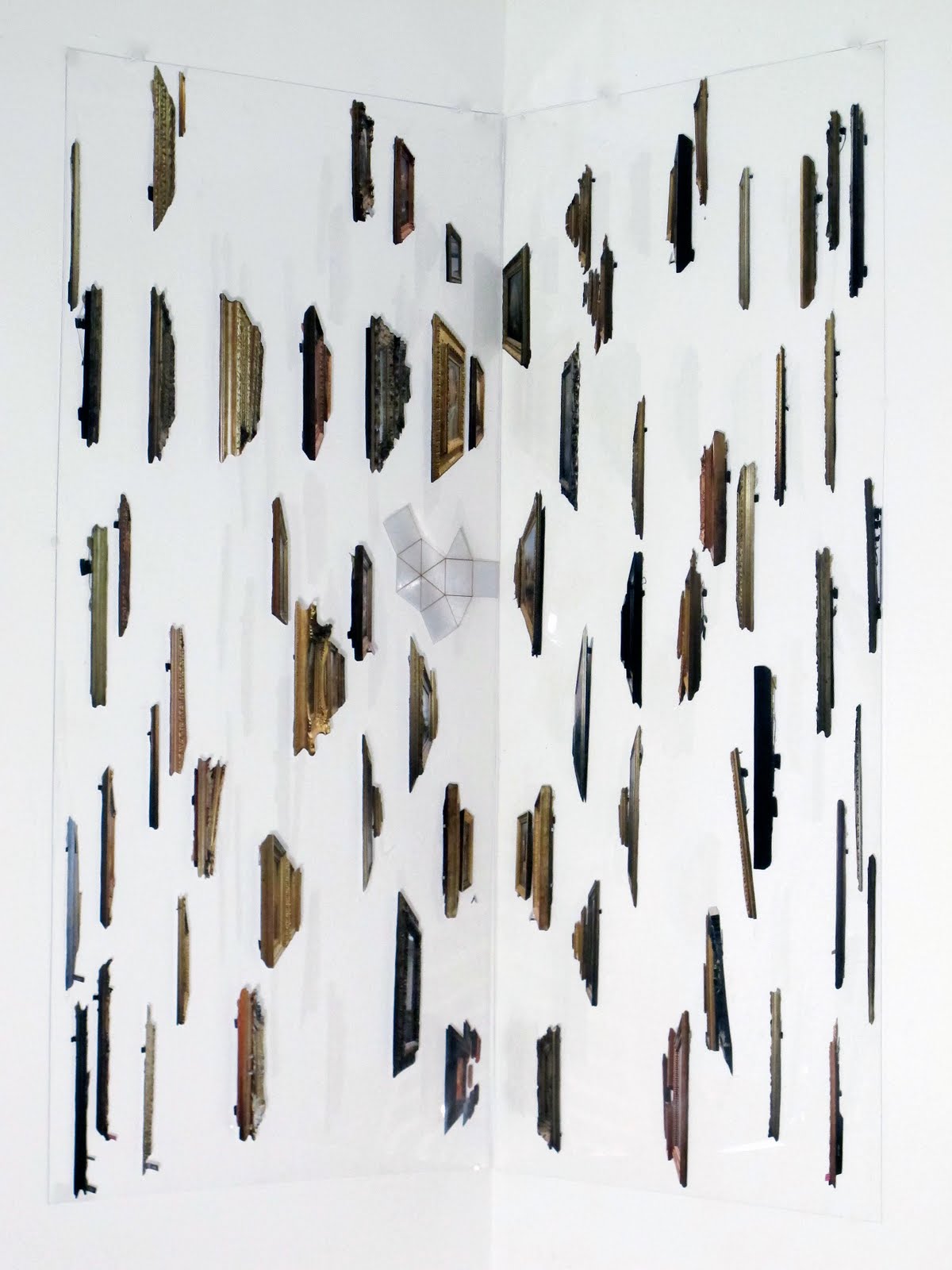Frame Fetish (after Stevie Hanley’s Turning the Corner That Never Comes)
by Travis Jeppesen on October 1, 2013

It must be so nice, that feeling: to be contained. But then again, the danger is that it might lead to other feelings, feelings of a more rebellious nature: you know, to break apart that container. Still, we chase after it in all our day-to-day, the inherent aimlessness of all our wanderings. It’s always the three dimensions that hold onto, embrace, the lower, two dimensions. The lower supposed to be our focus, what we are trained to look at. We always try to do the right thing, sometimes it’s hard. Can I be a/yr temporary container for a moment?
Or: the space outside that container.
Now we’re confused.
We could try to contain some of that space – or replicate it – that is, catalyze, create the illusion of space – inside our own picture. A picture of containers. But then do we contain that picture? No, for to do so would be to take a moral stance. We’re (suddenly) more interested in the adventure of non-containment.
The frames float in the container I’ve created, the space around them is formaldehyde and the thing containing them is an aquarium. I have ichthyologically inseminated this sphere with a new meaning. And now that the drama has been centered, a new one emerges to contaminate the preservative: What about time? We can’t avoid it, we’ve already brought the formaldehyde of space into our percept.
Time is the one part that can never be seen. Due to our innate perceptual limitations, time remains motion’s bitch. Time gets buttfucked each time we blink our eyes. The picture – that which is contained – will suffer, will call out for a preservationist to blow bubbles into its vitality – no one notices the way the frame suffers, those stains that gravity leaves on its surface. Gravity is motion, time, too.
But there is another, joyful component to the frame’s sufferings at the whip of time, for time is also the mothering force seeped inside all ecstatic awareness of becoming – even if most becoming is a poetics of decay – this morbidity is not without its erotic aspect.
When I need to escape from the deceptions of enlightenment, I look away from that which is supposed to center my gaze – that thing being contained – and the bars of the prison become my fantasy phallus.
I will never be as inside as you are, I know, because you’re the one who gets all the hairy eyeball love while I merely hold you up and away from the ground. This is the tender romance of our disengagement: you will survive and thrive, though wounded by time, without me, while without you, I am empty and useless, waiting to be filled.


Leave your comment